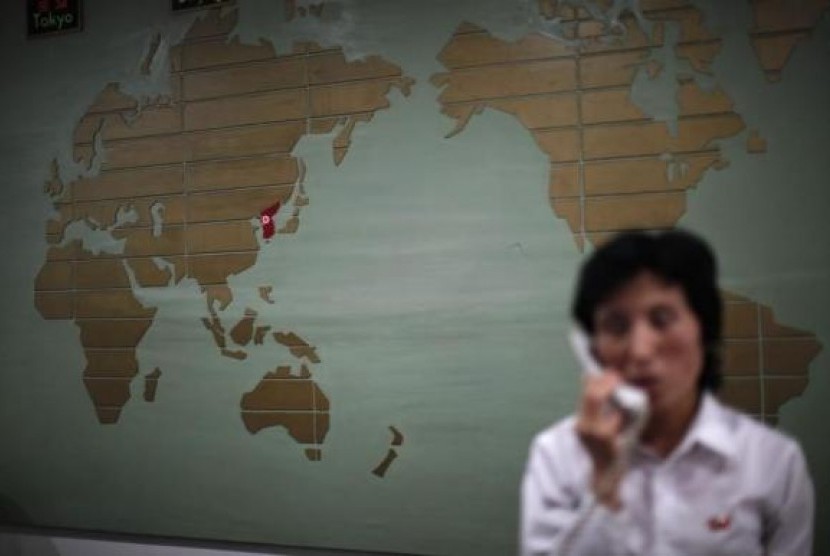REPUBLIKA.CO.ID, SEOUL -- The hacking attack on Sony Pictures may have been a practice run for North Korea's elite cyber-army in a long-term goal of being able to cripple telecoms and energy grids in rival nations, according to defectors from the isolated state.
Non-conventional capabilities like cyber-warfare and nuclear technology were the weapons of choice for the impoverished North to match its main enemies, they said. Obsessed by fears that it will be over-run by South Korea and the United States, North Korea has been working for years on the ability to disrupt or destroy computer systems that control vital public services such as telecoms and energy utilities, according to one defector.
"North Korea's ultimate goal in cyber strategy is to be able to attack national infrastructure of South Korea and the United States," said Kim Heung-kwang, a defector from the North who was a computer science professor and says he maintains links with the community in his home country.
"The hacking of Sony Pictures is similar to previous attacks that were blamed on North Korea and is a result of training and efforts made with the goal of destroying infrastructure," said Kim, who came to the South in 2004.
The North's most successful cyber-attack to date may be the hacking at Sony Corp that led to the studio cancelling a comedy on the fictional assassination of North Korean leader Kim Jong Un.
Although not officially accused by Washington, US government sources said on Wednesday that investigators had determined the attack was "state sponsored" and that North Korea was the government involved.
"They have trained themselves by launching attacks related to electronic networks," said Jang Se-yul, a defector from North Korea who studied at the military college for computer sciences before escaping to the South six years ago, referring to the North’s cyber warfare unit.
For years, North Korea has been pouring resources into a sophisticated cyber-warfare cell called Bureau 121, run by the military's spy agency and staffed by some of the most talented computer experts in the country, he and other defectors have said.
Most of the hackers in the unit are drawn from the military computer school.
"The ultimate target that they have been aiming at for long is infrastructure," Jang said.
In 2013, South Korea blamed the North for crippling cyber-attacks that froze the computer systems of its banks and broadcasters for days.
More than 30,000 computers at South Korean banks and broadcast companies were hit in March that year, followed by an attack on the South Korean government's web sites.
An official at Seoul's defense ministry, which set up a Cyber Command four years ago, said the North's potential to disrupt the South's infrastructure with cyber-attacks is an emerging threat but declined to give details.


